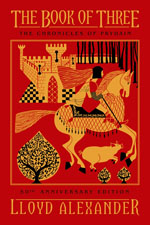A talk given by Brandon Rhodes at PyGotham 2014, and in my humble but infallible opinion, a very interesting one. Rhodes has much to say about how to encourage the creative faculties and how to bully them into silence.
There are one or two minor factual errors. Lewis was not the first person to whom Tolkien showed the Silmarillion matter: he had given some of it to R. W. Reynolds (for whom he wrote the ‘Sketch of the Mythology’ about 1926), and his earliest audience had been his wife, Edith. But these are unimportant in this context. Lewis was definitely the critic and catalyst who awoke Tolkien’s full powers and spurred him on through his most productive period. How he did so, and how he almost failed, makes an illuminating story.
Hat tip to Nancy Lebovitz for sending me the link.








Recent Comments